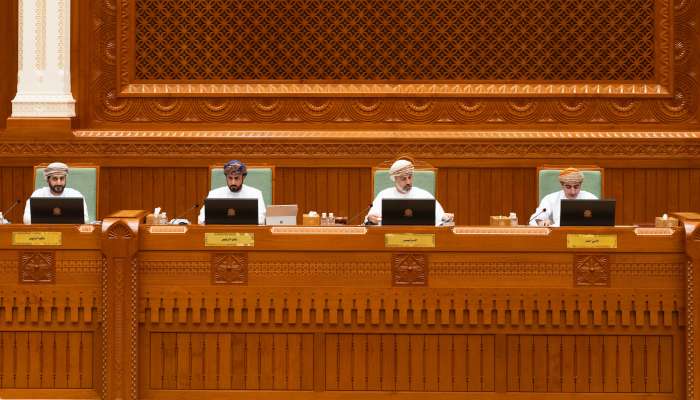
Muscat: The Shura Council, during its fifth regular sitting of the second annual session (2024–2025) of the tenth term (2023–2027), referred the Telecommunications and Information Technology Regulation Law to the State Council for further legislative processing.
The session, chaired by Khalid Hilal Al Ma’awali, Chairman of the Shura Council, was attended by Their Excellencies the Council members and Ahmed Mohammed Al Nadabi, Secretary-General of the Council.
The decision aligns with Article 49 of the Oman Council Law, which mandates that government-drafted laws be reviewed and approved by the Shura Council within three months before being referred to the State Council for further deliberation.
During the session, Dr. Hamoud Ahmed Al Yahyai, Chairman of the Public Services and Utilities Committee, presented the committee’s report on the proposed law, highlighting its importance in modernising Oman’s regulatory framework for the telecommunications and IT sector. The law clearly defines the roles of the Ministry of Transport, Communications, and Information Technology in policy-making and the Telecommunications Regulatory Authority as the sector’s regulatory body.
It aims to establish a competitive and investment-friendly environment while ensuring quality service delivery and consumer protection.
As part of its review, the committee engaged representatives from Oman’s telecom companies to assess industry challenges under the current legal framework, in addition to consulting government entities and sector experts.
The session also saw discussions on areas of legal divergence, particularly regarding penalties and regulatory provisions, presented by Dr. Talal Said Al Mahrouqi, Deputy Chairman of the Legal and Legislative Committee. Council members raised concerns regarding network coverage, pricing, dominant operators, and internet service quality across Oman’s governorates before voting to approve the law.
In addition to the legislative discussion, the Shura Council approved bilateral agreements in the maritime transport and port sectors, including an agreement between Oman and South Africa on maritime transport and a cooperation agreement between Oman and Tunisia on maritime transport and port development.
The session further saw the approval of two expressed desires submitted by the Media, Tourism, and Culture Committee. The first focuses on maximizing the economic returns of select World Heritage-listed archaeological sites, advocating for strategic investment and development to transform these locations into economic assets while preserving their historical significance. Committee discussions emphasized engaging the private sector, SMEs, and community enterprises in heritage tourism projects, alongside the possibility of foreign investment in cases where local investors are unavailable.
The second expressed desire called for the Ministry of Information to adopt an initiative supporting the establishment and enhancement of personal communication channels, acknowledging the growing influence of digital media and its role in public discourse and community engagement. The committee underscored the importance of structured guidance, capacity-building programs, and media training to help individuals create meaningful, high-quality content that serves society.
The session concluded with extensive deliberations, reaffirming the Shura Council’s commitment to legislative advancement and economic development in alignment with Oman’s national vision. The Council will continue its legislative agenda in the upcoming sixth regular sitting.